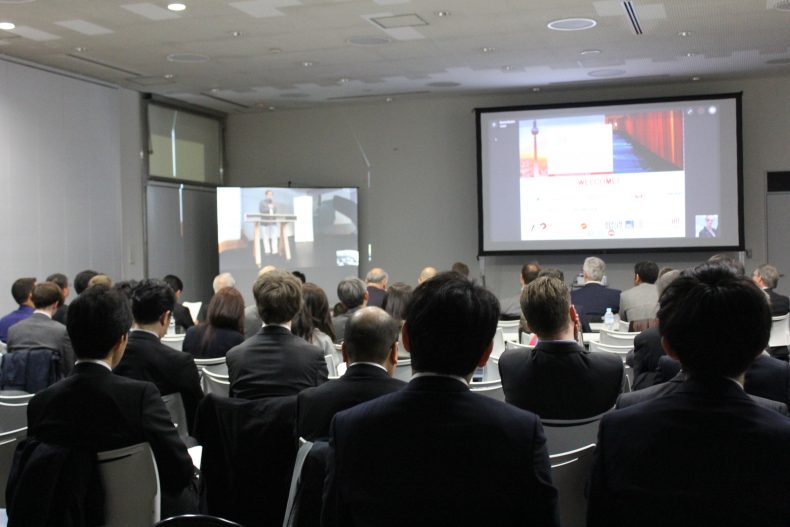The process of starting a new company has always been a daunting task but in a post-Brexit environment, there is also an abundance of confusion as new rules and regulations need to be observed. Not only do you need to focus on the financial and organisational aspects of starting a business, but you also need to be aware of what this means for small businesses in terms of shipping to and from Europe. If you are concerned about how this will impact your start-up, the following information will give you a better understanding of what you are up against.

A Quick Look at the Impact of Brokerage Fees
Once the UK has exited the EU, it falls within the realm of the World Trade Organisation (WTO), in terms of tariffs, taxes, and brokerage fees. Previously, as a member state of the EU, these were not applicable but will now make a dent in a business’ profitability. Brokerage fees set by the WTO will be assessed on both sides of the UK/EU border and they will fall roughly between £12 and £20.
This is to be assessed and charged by UPS and FedEx just to process the paperwork involved. There will also be VAT to pay and all this equates to expensive shipping, which will obviously impact a start-up’s bottom line. To get an idea of how these fees will impact UK businesses going forward, examining Swiss trade would be the place to start.
Switzerland’s Relationship with the EU
Bearing in mind that start-ups are concerned with the cost of shipping to keep the supply chain profitable during post-Brexit trade, Switzerland would be the place to get a better understanding. Switzerland is in the Schengen area of the EU and citizens can travel throughout the European Union without a passport. However, they are not part of the trade agreement within the EU and so are subject to the tariffs, taxes, and fees, as mentioned above.
In a public statement to the media about Brexit, Antibodies, an online shop for research materials, highlights the issues with falling back on WTO tariffs and particularly laments the increased costs due to customs fees and duties that will be applicable to every shipment – highlighting the impact this will have on small British business with customers across Europe. Any extra cost’s will reduce their competitiveness, reduce their margins, and potentially result in a loss of sales and subsequent job losses.
Government Initiatives to the Rescue!
Even so, if you are seeking financing to get your start-up off the ground, the government has established initiatives for investors which are particularly attractive. Of particular note are the EIS and SEIS schemes, which are set up to give investors some of the very best tax breaks available in the UK.
Both the EIS and the SEIS have been established to encourage investments in SMEs in the UK. The EIS (Enterprise Investment Scheme) and the (Seed Enterprise Investment Scheme) are there for the purpose of encouraging investors to buy new shares in small, and as yet, unlisted companies. These companies cannot be listed in the major markets, but they can be listed on smaller listings such as the ISDX or AIM.
The reason why it is important to understand these initiatives is to give you a background when seeking investors in your start-up. These make it attractive for new investors to buy shares of your company while helping you to offset those additional shipping costs you will be subject to in the supply chain to and from the continent.
An Investment in People
Additionally, there is also the question of supply and demand of qualified personnel. Bearing in mind that there will be additional costs and paperwork associated with bringing professionals from European nations, this is another supply chain being impacted.
Companies that rely on talent from the Europe may struggle with recruitment, which will have a knock-on effect on their supply chain. This is already evident in the healthcare sector.
To date, according to an article in The Balance, the UK has already lost 90 percent of its European nurses, who have already resigned. Now, think of the already critical shortage of trained medical professionals and the global crisis in healthcare, and you will further understand why these investments mentioned above are of utmost importance. Remember, supply chains refer to people as well as material goods.
The Ultimate Solution for Post-Brexit Supply-Chain Concerns
Once again, the UK is faced with the unknown in terms of the time frame for a final Brexit. The article mentioned above stated that PM Johnson is not bound by previous agreements and he can initiate his own agenda. Consequently, this new state of uncertainty can also affect more than just the supply chain because it will heighten the need for investment.
The ultimate solution will be to understand that bottom-line costs to customers will be affected and to adjust prices accordingly. It will mean capturing the attention of investors with key benefits such as tax breaks so that you will have the financial wherewithal to begin trading.
It will also mean an honest evaluation of when you should launch your start-up. Do you want to begin now with Brexit on the horizon or do you want to wait until the days immediately following Brexit when you will not need to reinstitute shipping policies and costs.
A hard Brexit will make it necessary for companies to re-evaluate how to canvas for staff. It will take longer to get ‘international permissions’ because European professionals will need to follow the same requirements as anyone coming from any nation on any continent.
This having been said, don’t let post-Brexit concerns affect your start-up. The supply chain can be managed with a few extra calculations on costs, a better source of financing, and a key person dedicated to working through the new regulations, some of which are yet to be determined. To borrow an old cliché, ‘Rome wasn’t built in a day’ and neither will post-Brexit UK. It will take work and a solid understanding of the conditions under which Brexit will occur, but could also mean greater opportunities for start-ups.











